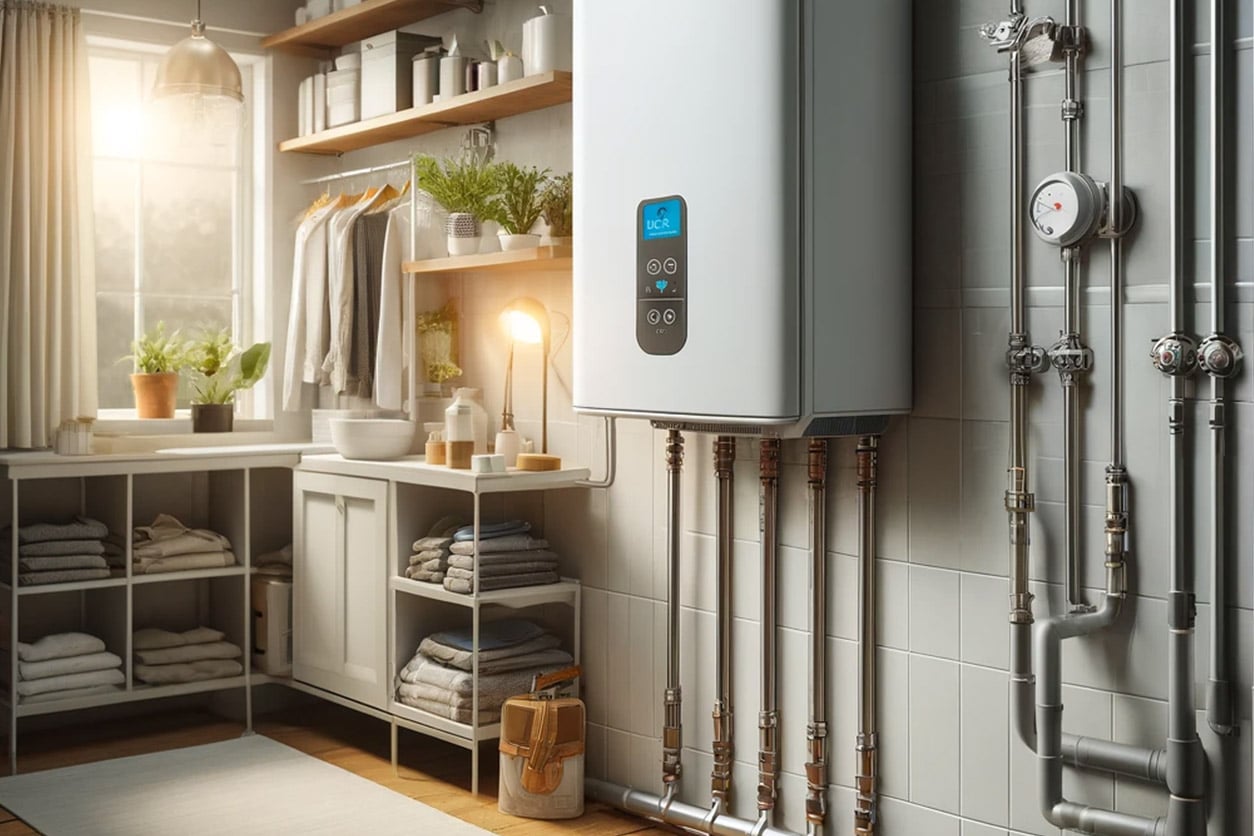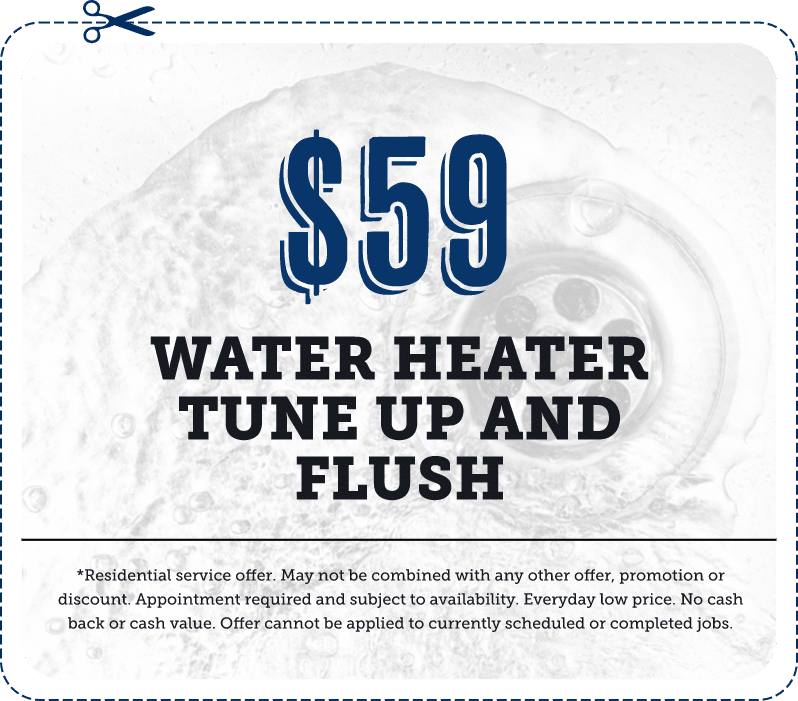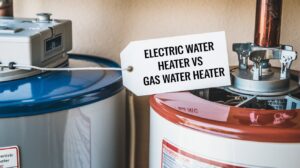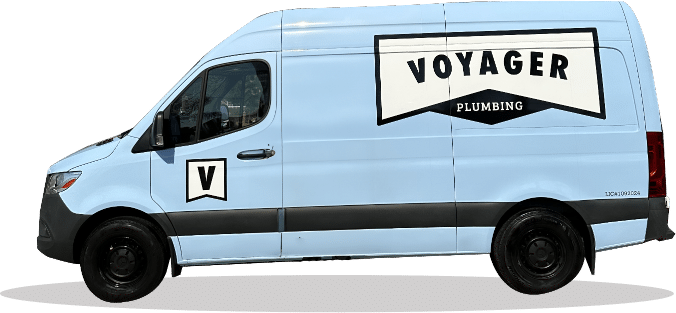Water heaters are a must-have in many homes, especially during the chilly winter months.
With a good water heater, you can have wonderful hot water whenever you need it, and you can supply your whole home!
But like any household appliance, water heaters use electricity and other resources to work, and this can have an impact on the environment. If you’re eco-conscious, you should consider getting continuous water heaters.
These water heaters, also called tankless water heaters, are very efficient, making them a great option for an eco-conscious home. Let’s explore what you can expect from continuous water heaters.
What are the benefits of tankless water heaters?
Here are some of the benefits you can expect from a tankless water heater for you and the environment:
1. Energy Efficiency
Water heaters account for 25% of energy used by homes. However, tankless water heaters, according to the U.S. Department of Energy, are 99% more efficient than traditional storage water heaters.
Continuous water heaters are designed to only heat your water when you want it to. This eliminates the heat lost on standby, which is usually the problem with traditional water heaters.
This energy efficiency can potentially help you save up to $100 on your utility bills annually.
2. Environmental Impact
The United States produced over 6,340 million tons of carbon dioxide in 2022, with each home emitting at least 10.9 metric tons of carbon dioxide every year. These greenhouse gases can directly affect the environment by contributing to global warming.
Since tankless water heaters only heat the water when you need it to, they rely a lot less on non-renewable resources. This can help reduce the emission of greenhouse gases in the long run.
If you’re aiming to lower your carbon footprint, a tankless water heater is the way to go.
3. Compact Size
Traditional tank water heaters often require a lot of space. This is mostly because they come with a big tank to store the water.
Tankless water heaters, as the name implies, don’t need a tank because they don’t need to store water. In addition, these water heaters are small and can be installed on a wall—this can save you a lot of space inside your home.
4. Increased Home Value
Installing eco-friendly features like continuous water heaters can qualify your home for a green certification. It’s estimated that homes in California with these certifications sell for 7.7% more than non-conscious homes.
So if you’re planning to put your home on the market, a tankless water heater may be seen as a valuable feature by eco-conscious home buyers and you may be able to sell your home for a better price.
5. Smart Technology
Many newer continuous water heaters come with smart technology that can enhance their environment-friendly functions. With features like energy monitoring, you can optimize the usage of your water heater and reduce energy wastage.
Also, some water heaters can be operated remotely, allowing you to turn off the heater when you’re not at home. Not only can this save electricity but it can also prevent fire hazards.
6. Long Life Span
Tankless water heaters have a longer lifespan than most traditional water heaters. On average, a tankless water heater can last for about 20 years, as compared to traditional water heaters that only last for about 8-12 years.
This will ensure that you will not need to replace your water heater any time soon, meaning less waste at landfills.
However, you must regularly maintain a tankless water heater to make sure that it will continue to work efficiently throughout its useful life.
What should you consider when choosing a good continuous water heater?
Here are a few things that you should look into when getting a tankless water heater:
1. Fuel Type
Tankless water heaters can either be gas-powered or electrical. Gas–powered tankless water heaters are powerful and they are efficient at heating water for large homes. However, they will require venting and upgrades to the gas lines.
Electric tankless water heaters are easier to install and compact, making them a good choice for small homes.
2. Temperature Rise and Flow Rate
Check your home’s hot water demand in terms of gallons per minute or GPM.
Determine your groundwater temperature to estimate the temperature rise. For example, if the groundwater temperature is about 40 degrees Fahrenheit, you’ll need at least a 60 degrees Fahrenheit temperature rise to get the water to 100 degrees Fahrenheit.
With this in mind, look for a water heater that offers the right temperature rise and GPM for your home. Finding the GPM can be difficult to do on your own if you don’t have much experience with water heaters, so you should consider calling a professional to assist you.
3. Non-Condensing vs Condensing
Condensing tankless water heaters are more efficient but they have a higher upfront cost.
Non-condensing tankless water heaters, in contrast, are much easier and less expensive to install.
4. Energy Efficiency Rating
Look for tankless water heaters with a good energy efficiency rating. The Energy Factor rating shows you how efficient a tankless water heater is; ideally, the rating should be between 0.85 and 0.96 UEF.
Play your part in saving the environment with a continuous water heater
A comfortable home is a happy home, but it’s important to understand how appliances that make your home comfy can affect the environment in the long run. With a tankless water heater at Voyager Plumbing, you can enhance the comfort of your home while being eco-friendly.
So get in touch with a good plumbing company to experience the benefits of tankless water heaters in San Diego today!







